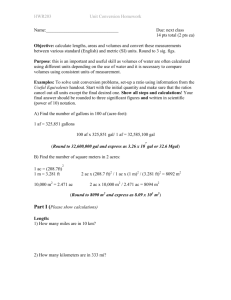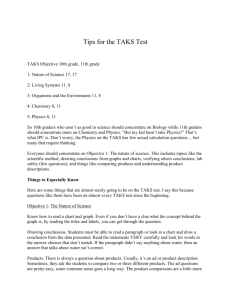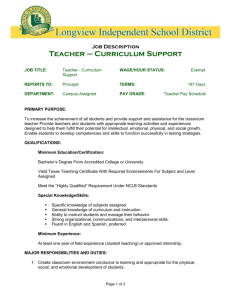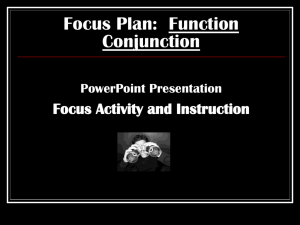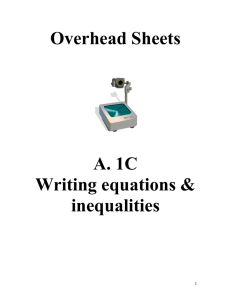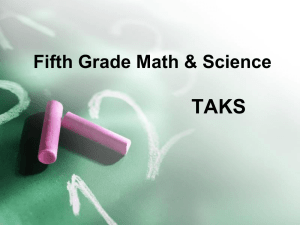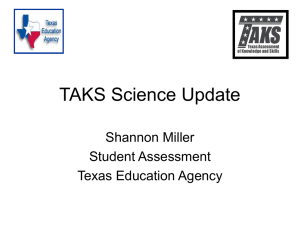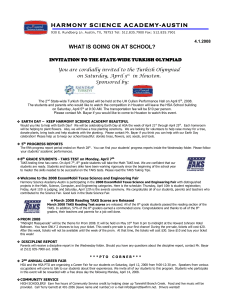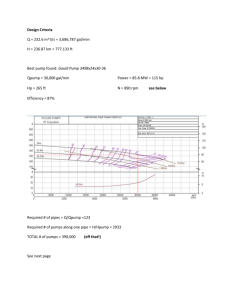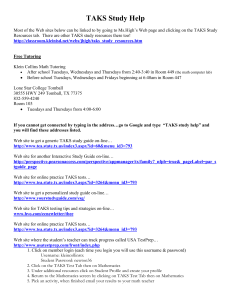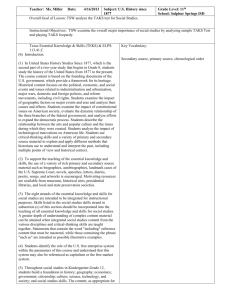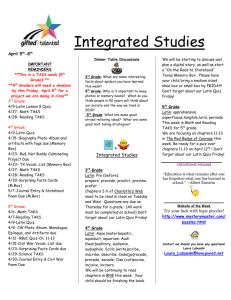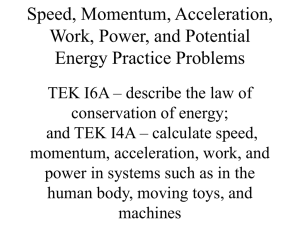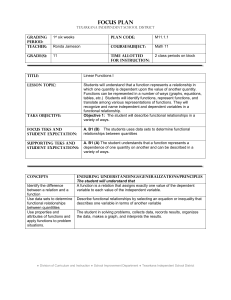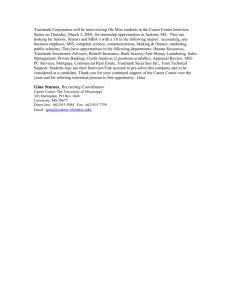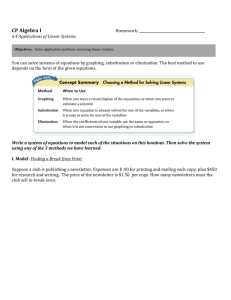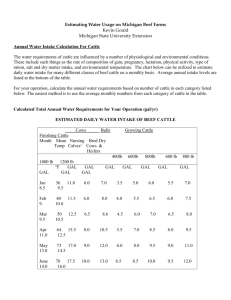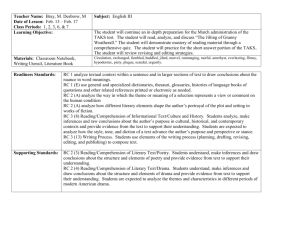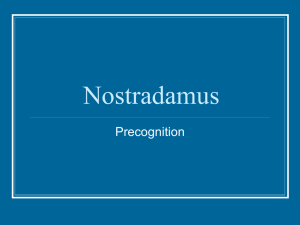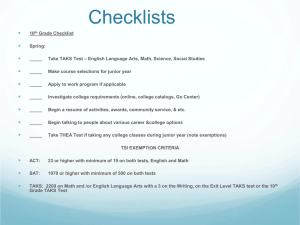Powerpoint Notes Presentation A.1E
advertisement
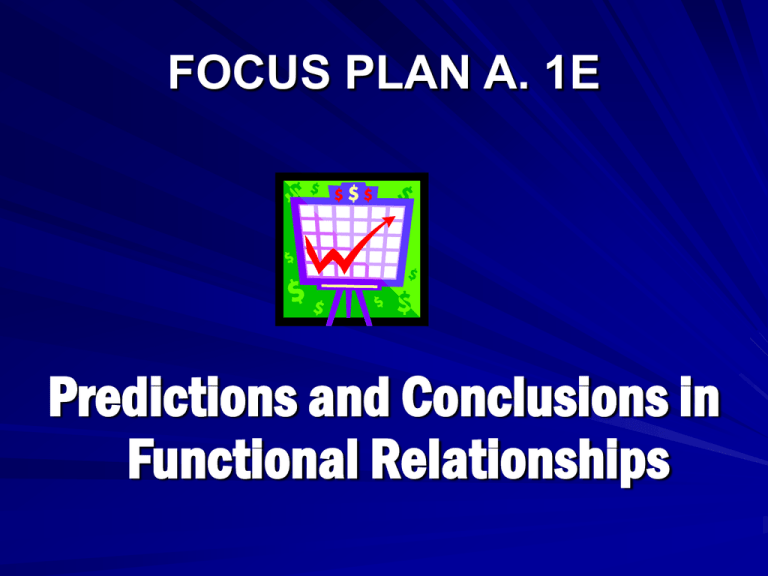
FOCUS PLAN A. 1E Predictions and Conclusions in Functional Relationships A. 1E The student will interpret and make decisions, predictions, and critical judgments from functional relationships. ON your TAKS, you will be asked to interpret and make predictions from functional relationships. A “functional” relationship may be a graph or a table. The following slides are examples of TAKS questions. Grade 11 TAKS 2003 Gina did a research project on how age affects sleep patterns. She concluded that as people age, they sleep fewer hours until a point in adulthood when the number of hours remains constant. Gina also found that after the age of 70 the amount of time spent sleeping increases slightly. Which graph best shows the results of Gina’s research? Grade 11 TAKS 2004 Karen jogs at a steady pace up a hill in her neighborhood. She then runs down the hill, and her speed increases. Which graph best describes this situation? The graph shows the number of gallons of gas used by Maria’s car as a function of the number of miles driven. About how many gallons of gas will Maria need for a 170 – mile trip? A B C D 7 gal 8.5 gal 9.5 gal 11 gal Drawing Conclusions from Functional Relationships: Understand the problem. Identify the quantities involved and any relationships between them. Determine what the variables in the problem represent. For graphs: Determine what quantity each axis on the graph represents. For tables: Determine what quantity each column in the table represents. Look for trends in the data. Look for maximum and minimum values in graphs. Look for any unusual data. Match the data to equations or formulas in the problem
